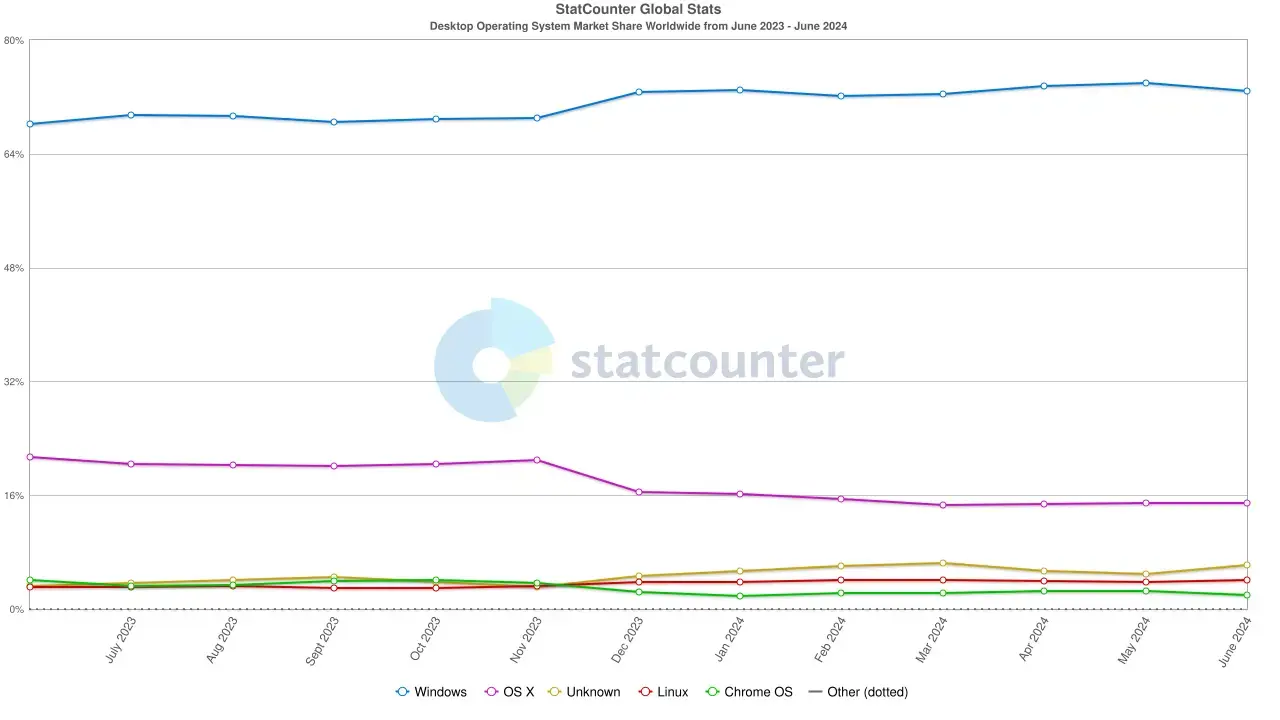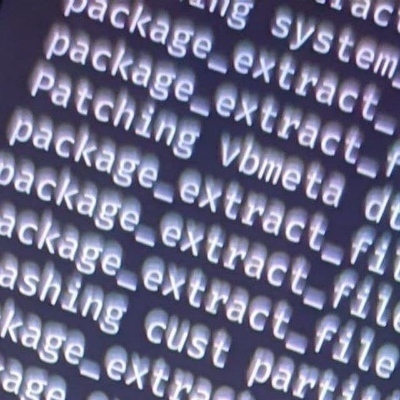Sorry but Linux is becoming too mainstream for me now. Time to hop on to BSD
Oh no, I feel it already the “I was on Linux before it was cool”
Dragonfly BSD, or else it will still be mainstream :)
Check out mister Mainstream over here. The rest of us snooty OS connoisseurs use Collapse OS.
im doing my part 💪
switched to arch a week or so ago, absolutely loving it
I’m doing my part
Linux Mint here. Soon to switch to a more “manual” distro.
I can’t think of time where I needed anything more than Mint for a desktop. It’s been on at least one device in my house since 2010.
The only real reason to switch to another distro nowadays is because you want to get updates faster (rolling release [like Arch] vs steady releases) and/or you want the ability to customize the OS more easily. Also, if you wanna be that person that wants to remove SystemD from Linux or have a version controlled OS.
I like mint cause it stays out ofy way for literally everything.
Time to speak to our representatives to switch to Linux Systems as Switzerland did for cyber security and for fiscal responsibility.
We must not fall behind that smart country once again.
Il feels like every month that passes Linux keeps breaking all time highs! So exciting
YEAR OF THE LINUX DESKTOP
We’re gonna hit that 5%
It is kinda crazy. Been using Linux since 2005 or 2006 on my desktop/notebook. I cannot believe we are almost mainstream now.
Now that we do so many things through a browser and WebKit/Blink (which run everywhere) have become the de facto standard browser engines, the OS no longer matters as much as it used to.
It is 16% in India, lessgo!
Nobody using TempleOS? =(
THE LORD NEEDS NO NETWORKING!!! THE LORD IS THE NETWORK!
I’m so happy.
But also liked when linux felt like a secret.
Microsoft finally did something right: they made their shitty product shitty enough for people to realize it.
But also liked when linux felt like a secret.
Don’t worry. You can still tap into that sweet sweet Linux elitism by running an Arch based system or a tiling window manager.
That’s old news, NixOS is the new hotness
Only if you’ve installed Arch itself, using a GUI is noobs.
I see your Arch and raise you a Gentoo.
Also what the fuck is a tiling window manager? I want it!
Instead of having your windows float around, they perfectly snap and fill the space of the monitor depending on how many windows you have open. A new DE in alpha right now called Cosmic has both floating windows and tiling, you can change with just a toggle.
Cosmic is great so far, I run it on Fedora.
Oh my gosh I need this now.
Fedora? 🤢 jk
The big common ones are i3, Hyprland, or Awesome. However, there are tons out there and there is no right answers.
I want my windows anywhere I want them, and in Cinnamon I can snap windows to corners, o top, or bottom… Being forced to work tiled is backwards.
If as someone mentioned in Cosmic you can toggle it off and on ( and the toggle is esasily accesible, not buried in settings) I’m fine with that
“Being forced to work tiled” that’s the main feature of a tiling wm though…
If you tried it for a while, you’d realize just how annoying floating windows really are. All that manual positioning, focus issues, getting them stuck or hidden behind other windows, etc. For big monitors, I would say tiling is just flat superior to floating windows managers.
I’m sorry, can you clarify what you wrote? I read it but then got distracted by my cursor moving on its own while I was reading an article about xzutils. Perhaps I should read it again since it made no sense the first time.
I think Gentoo with no binaries should be the new archlinux. I’ve literally used archlinux virtually unchanged outside of updates for years now. It’s been trouble free outside of some minor bugs and I change my settings in the kde settings panel 90% of the time.
soon we will reach the magic number companies need to finally consider supporting Linux for once
What is that magic number?
Always 5% higher than it currently is.
At this rate the Year Of Linux On The Desktop will be 2033!!!
Call me naive, I know I am. But how can Linux be a moderated product to sell for desktop? I know phones run Linux, and many other products like streaming pucks run Linux (or is called unix?), but what would it take for an operating linux system to be centralized into a package to toss into a lenova laptop you’re staring at in best buy?
Some laptop manufacturers (and at least one of the larger ones) already offer Linux (Ubuntu) as a pre-installed OS. I suspect this will become more common if/when Linux becomes more popular as a mainstream desktop OS. Most likely it will still be 1 or 2 pre-selected distros though even then.
That’s really cool I didn’t know that was an option already. How does Ubuntu and windows compare for operating system support if I have a problem with the laptop? Is the manufacturer liable for the smooth running of the operating system? Or is the owner of the operating system liable?
It’s a good question but I honestly have no idea how that works even today with windows actually because I have not owned a laptop in 15 years. In my mind, the laptop manufacturer has to guarantee compatibility with any OS it provides but even then, some support from the OS side may be needed. The best way to handle that would be if the manufacturer started contributing to the Linux kernel and provide full driver support because then everybody wins in the long run.
One way to do it is for each company to develop their own flavor to ship with their laptop, in much the same way phone manufacturers just modify Android and ship it.
As an example, check out System76 and their laptops featuring their Pop!_OS distro, which is very user friendly and stable in my experience.
It’s a tough sell because there is no monetary incentive to get Linux on laptops and desktops. Dell has a few computers that ship with Ubuntu, and Lenovo with Fedora, and there’s System76. The problem is that the big manufacturers (namely Dell) get push-back from Microsoft if they start to sell other OSes with their products, so they no longer have 100% domination. Microsoft will say “Oh you’re selling a few products that come with Linux? Well, we won’t offer you the ability to sell Windows anymore…” which would obviously be a huge impact to their business. They have gotten around this, but their offerings are still really slim. The market just isn’t there compared to Windows based computers. Shelf space is expensive so they go with what sells: Windows based products.
Is it because Microsoft is the big dog with money and Linux is no dog because there is no company backing Linux? Windows sells solely because Windows can push the product?
Would it be benificial (albeit this will be extremely frowned upon by this community I believe) for a Linux distro to be backed and monetized via a corporation with a legal team to help push a Linux product on the shelves? In the short run it’s a bad idea, but in the long run it’ll familiarize the public, and push software developers for compatability. The incentive being that there’s money now involved and it won’t be a project for people.
Because right now to use Linux for the majority of user case operations you’d need at least computer science 101 to start installing a distro, partitions, manual software installation, to get running. Or am I wrong on this part?
There are a couple of OEMs like System76 and Starlabs that sell laptops with Linux on them, provide tech support for customers and so on.
And no, installing most distros aren’t hard. You just click the buttons to proceed and fill out the username and password box, select your time zone and select your wi-fi network if you’re using wifi.
You can do manual partitioning but why would you if you don’t know what you’re doing?
Installing software in the GUI is as easy as installing software from the Microsoft Store. Just search or look around and when you see something you want, just click the Install button.
The crowdstrike failure is probably helping Linux.
This is what I was thinking when it happened. Businesses lose a shit ton of productivity and money due to Microsoft and Windows being a clusterfuck in multiple ways and they decide it’s time to switch to something more stable.
I highly doubt businesses would have been this fast in making the switch.
It helps to move quickly when your entire infrastructure crashes.
One crash will absolutely not make this big of an uptick. The amount of highly specialized software and hardware that is OS dependant means switching will only be possible when those companies, hell really entire industries, decide to move over to a more open standard soft/hardware setup. In this case, a crash is a big deal, but the IT teams get on it and fix it in a day or two.
Also, certain Linux machines were affected by the cloudstrike outage. Even less reason to switch when the alternative was effected as well.
So like 6% if you class ChromeOS as Linux (which it essentially is, just with a proprietary DE)
Then 7% unknown, you’d imagine a disproportionate amount of those would be Linux users, who are more likely to have unusual useragents or things that mess with telemetry. But who knows.
That FreeBSD club looks pretty good. There’s a niche for every niche.
NetBSD needs some love too 🚩
Is someone kind enough to post a screenshot of the stats? I can’t access it, because its a known tracking site and get blocked by the plugins.
Okay, I have bit the bullet and made an exception to provide screenshots myself:


Next time try out visiting the page through archive.org
I didn’t think of it, because I always think or archive.org as older pages/versions. The problem is, is it updated to current? It’s a big site, so probably it will be. Good idea, I’ll check that next time through archive.org.
You can always* request a new archive of a website. If you log in (warning: it has to load google code at least when registering) you can also request a screenshot (which I don’t know how you find later on, but right after you get a link) and recursive archiving with a depth of 1.
Interactive elements remain interactive nowadays, but it has limitations.In some cases archive.today is worth a try too. It has workarounds for e.g. facebook, or at least in the past it had a fake account to be able to save facebook content.
But this one loads whatever code from yandex, so if that’s problematic for you be sure to block it. uMatrix is best for that task, probably uBO can do it too, the Firefox version I mean.These sites are basically my “remote browser”, and often it’ll be even useful for others that I requested an archive. Quite often I’m requesting the first one.
* mostly, but you can’t if the site was very recently archived, like in 30 minutes. Then there are some sites that are blacklisted for some reason but not much.
Hmm is this really happening so fast? It’s a little hard to believe.
Yes, although it’s not evenly distributed. Much of this rise is due to India doing some heavy lifting - they’re on like 16%, and they’re not exactly a small population.
Most places are in the 1.5-3.5% range.
Even 3.5% is quite a lot imo.
Indeed it is. But this is also calculated based on monthly page views, so it only really covers devices that are used in that month.
There’s a non-trivial amount of Windows users that have a dusty laptop that they only pull out when they need to write a document or fill in a form that they got emailed, and will otherwise do all their computing on their phone.
My guess would be that Mac and Linux have fewer of these types of users? But who knows. I have a couple of Linux devices that I almost never use 🤷♀️
I’ve seen many people having Linux on such devices so idk either.
I suspect it’s a bump due to Windows Recall. I know I fully switched because of it after 25 years of off and on the Linux Desktop. And I will not be going back.
I suspect it’s a bump due to Windows Recall.
I don’t believe it that much. It may just be the Steam Deck’s financial success. But everything is possible.
Maybe not, but, anecdotally, I know of a number of people who have made the switch because of Recall. Steam Deck surely adds to it, but people who have the choice to stop using Windows seem to be doing so.
Maybe not, but, anecdotally, I know of a number of people who have made the switch because of Recall.
Tbh I don’t get it. Wasn’t this feature only on Copilot+ PCs that almost nobody had? Why did so many switch if it wasn’t even confirmed that it’s coming to regular x86 machines? I always find it extremely weird.
Why did so many switch if it wasn’t even confirmed that it’s coming to regular x86 machines?
Panic.
Or they see the writing on the wall
Steam deck alone isn’t much. It’s not even popular in a lot of places in the world. But there are a lot of things happening in the market, and each small factor adds up to a general trend. So, there’s no single factor that we can point that will explain the linux growth in marketshare.
That’s what she said
There’s some kind of network effect associated to it, so the greater the numbers, the more likely to grow even more, and faster. For example, when linux was used only by a very few people in IT, most people were unlikely to even give it a try, but now that every class or working group are likely to have one or two linux users, more people will be likely to try it, and so on.
Yes, things move very fast if you haven’t noticed sugar pie
Sus














